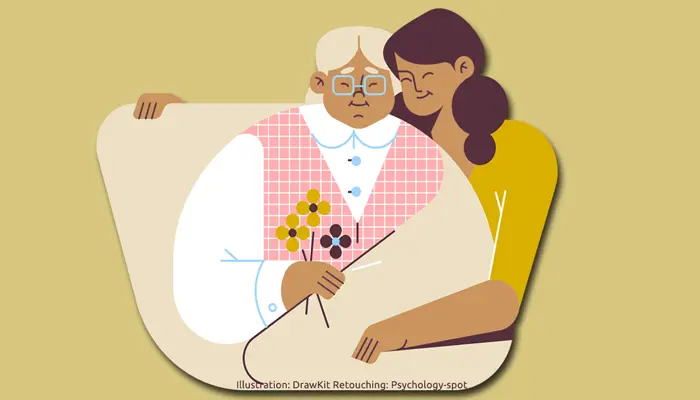
Sometimes it is difficult to find the right words to console someone. Finding the right word at the right time that generates the right resonance is an art that few people master. As a result, sometimes that attempt to console someone fails miserably and ends up adding more sadness, frustration, or hopelessness.
Clinical psychologist Susan Silk experienced it firsthand. When she discovered that she had breast cancer, she heard many unconvincing comments and words of comfort that did not console her at all. There were even people who discharged their problems on her, adding more weight to the burden she was already dragging with her.
She then realized that to console and being consoled is essential, but not easy. Many people, with the best of intentions, end up doing more harm than good in their attempts to console the others. That is why she developed the “Ring Theory” with Barry Goldman, with which she aims to help people understand and apply the art of consoling and being consoled in an assertive way.
What❤️ is the Ring Theory?
The Ring Theory is structured around the circles of trust in which we move on a daily basis. To apply it, the first step is to identify the support network available to the person who is going through the traumatic situation.
It is a simple technique to know when to give comfort and to help us receive it when we need it most. It is valid for all types of crisis, from health problems to financial difficulties and romantic or existential conflicts.
To put it into practice we must start by drawing a first circle, which will be the central ring. Inside that circle we must write the name of the person who is experiencing the trauma or going through the complicated situation.
Then we draw a second larger circle around the first one. In that ring we write the name of the person closest to whom is suffering the trauma, such as the partner or perhaps a child.
Next, we draw a third circle, but this time we write inside the name of the closest people, such as parents or close friends.
Finally, we draw a fourth circle and write inside it the names of people who are less close but who can help in some way, such as distant relatives, co-workers and neighbors.

In this way, we not only make a graphic representation of the support networks that this person has, but we also realize the position in which we find ourselves in that situation.
The rule: comfort the most affected, seek comfort in the least affected
With those concentric circles in hand, the rule to apply is simple: in the inner circles comfort is offered, in the outer circles comfort is sought. We have to console the people most affected and seek consolation in the people least affected. As simple as that.
The persons in the middle ring can say what they want to anyone in the rest of the circles, anytime, anywhere. Those persons are having a hard time and need support and validation, so they are allowed to complain or lament about the bad luck or injustice of life.
Of course, it is not about feeding a victimist or defeatist attitude ad infinitum, but we must understand that many times before we stand up, we need to lick our wounds. We all have different healing rates, and in the early stages it is normal for us to feel disappointed, hurt, or frustrated. Therefore, in the first moments after adversity it is likely that that person only needs to do catharsis, so the best consolation is to listen to him or her.
Of course, sometimes the problems of the others affect us too, and we can feel frustrated, sad, or disappointed. It is normal. However, turning those emotions directly onto the people most affected will not help anyone. It will only serve to increase pain and suffering.
Instead, we can seek comfort in people who are in the largest circles because being further away from the problem it is assumed that they are at the necessary psychological distance to help us manage our emotions.
Finally, we must have clear that when we speak with a person who is in a circle smaller than ours, someone closer to the center of the crisis, our main objective is to help, not to add more discomfort, pessimism or negativity.
How to console in an assertive way?
When a person needs to be consoled, it is often best to practice active listening. It is important to avoid the temptation to give advice because it is often not necessary and is likely to fall on deaf ears or, even worse, be annoying or appear pushy. The person who is having a bad time needs a receptive ear and a friendly shoulder. Rather than trying to comfort that person by telling her or him about our past experiences or telling what we would do in her or his place, it is better that we validate her or his emotions and ask how we can help.
Maybe that person needs someone to go for a walk with to vent or someone to take care of the children or pets for a few hours. Or maybe she or he just needs to go out to distract or someone to drive her or him to the hospital. Being useful, the best we can, not only implies taking a proactive attitude but also showing that we are available and offer unconditional support. And sometimes that’s all it takes to get out of the crisis.
Source:
Silk, S. Goldman, B. (2013) How not to say the wrong thing. In: Los Angeles Times.



